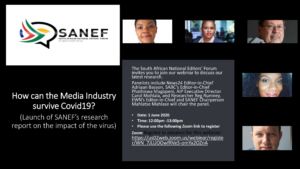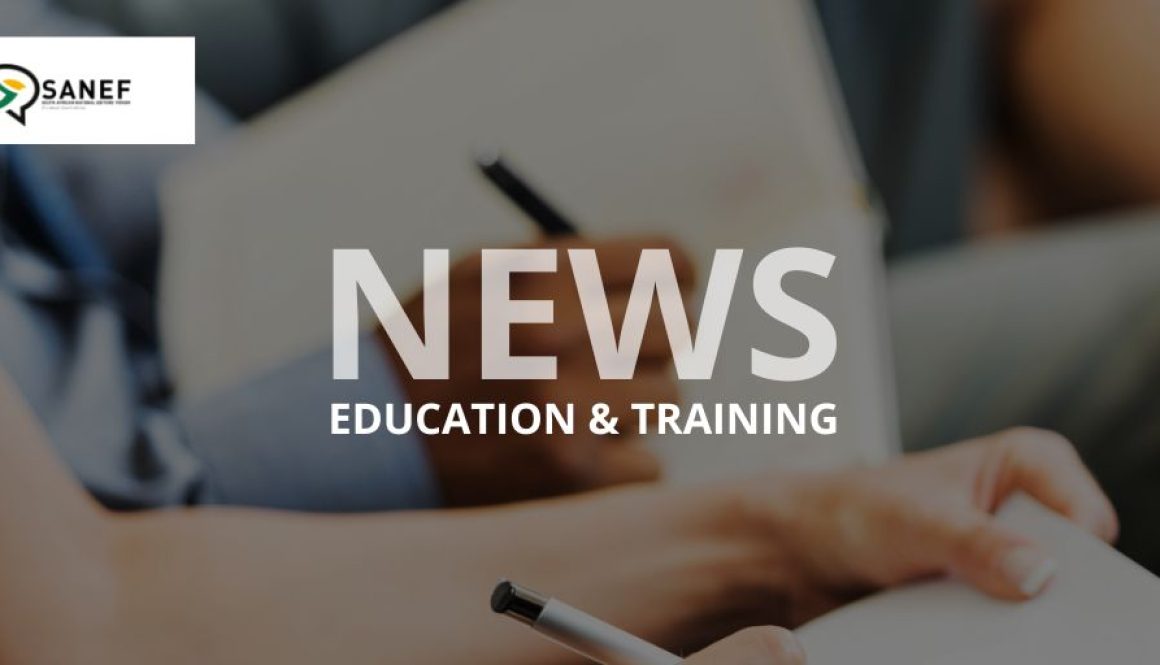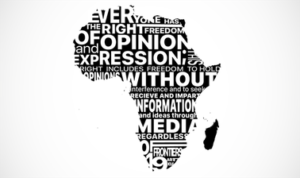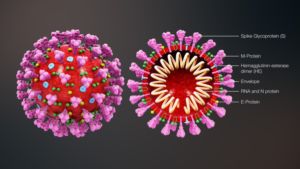
The South African National Editors’ Forum (SANEF) commemorates World Press Freedom Day in 2020 under level four Coronavirus lockdown in South Africa. We believe that during the coronavirus pandemic the news media has never been more important – and yet it is under severe threat.
Historically World Press Freedom Day has been celebrated as a day where citizens, journalists and journalist organisations around the world celebrate the fundamental principles of press freedom and its benefits to society. We evaluate the status of press freedom internationally and in our countries, regions and continents and we recommit to defending journalists from attacks on their independence.
In South Africa 2020 we note the important work done by journalists – particularly covering the Coronavirus pandemic. Journalists are designated essential workers and have been on the frontline telling stories of the spread and containment of the virus, the impact the virus is having on people’s daily lives, holding to account those in authority and educating the public on minimizing the risk of infection. We have seen audiences soar as citizens seek information on health issues and the economy. However, while journalism plays its critical role, simultaneously it has also been under severe financial threat as the lockdown has prompted advertisers to rein in spending and made it difficult to circulate newspapers and magazines.
SANEF notes the closure of Associated Media Publishing (AMP), one of South Africa’s pioneering independent media houses. AMP CEO Julia Raphaely announced that the company would cease trading and publishing all its magazine titles from Friday, 1 May 2020. AMP published famous brands including Cosmopolitan, House & Leisure, Good Housekeeping and Women on Wheels. Raphaely said that, coupled with the global halt on advertising spend as well as the inability to host events for the foreseeable future, the AMP found it impossible to continue trading. She remarked, “For the last 38 years, AMP has been one of South Africa’s leading publishers and our titles have been part of many people’s lives. It’s a big blow for magazine media brands in South Africa”.
AMP’s decision to stop trading comes soon after the distress call for increased government advertising support – and support from the Media Development and Diversity Agency (MDDA) – from the Association of Independent Publishers (AIP). AIP organizes approximately 200 small independent community print publications across the country.
Also, several media houses have announced plans to cut salaries by up to 40% and/or to stop commissioning the services of freelance journalists.
SANEF is aware that community media journalists and freelancers face some of the greatest threats. Freelance workers do not have the traditional protections of paid sick leave, insurance and funds from the Unemployment Insurance Fund (UIF). Consequently, they face a disproportionate risk of financial hardship. A survey carried out by the South African Freelancers Association (SAFREA) has shown the impact of the pandemic, with more than 50% of members having already lost more than 70% of their income. Many freelancers have lost 100%, and because their work is often ad hoc rather than contractual, they have been turned down for government relief funding.
Not only are jobs at stake, but media diversity and the production of quality news to provide verifiably information in the public interest should newsrooms, already under pressure, shrink or news organisations be forced to close.
In the wake of this crisis SANEF has decided to commission research on the impact of the Coronavirus on the industry and what is to be done. We hope to release the findings shortly.
We will be discussing these matters today as part of a three-part webinar series to honor World Press Freedom Day. The series is being jointly hosted by SANEF, Media Monitoring Africa (MMA), the Press Council, the Institute for the Advancement of Journalism (IAJ), the SOS: Support Public Broadcasting coalition and the AIP.
We warmly encourage everyone to attend the discussion today (Sunday) from 12 noon till 1pm. Please register before 11am.
https://behindthescenewitheditors.splashthat.com/
Also, do join us for the two follow-up seminars on Monday and Tuesday, also from 12 noon till 1pm, looking at the African Declaration on Freedom of Expression and the importance of community media.
https://africanagendasetter.splashthat.com/
https://commercialandcommunitymedia.splashthat.com/
Note to Editors: The South African National Editors’ Forum (SANEF) is a non-profit organisation whose members are editors, senior journalists and journalism trainers from all areas of the South African media. We are committed to championing South Africa’s hard-won freedom of expression and promoting quality, ethics and diversity in the South African media. We promote excellence in journalism through fighting for media freedom, writing policy submissions, research and education and training programmes. SANEF is not a union.
For more information please contact:
Mahlatse Mahlase – SANEF Chairperson, (083) 399-2852
Mary Papayya – Acting SANEF Media Freedom Chair (082) 379-4957
Judy Sandison – SANEF KZN Convenor (082) 571-3334
Sbu Ngalwa – SANEF Eastern Cape Convenor (073) 404-1415
Janet Heard – SANEF Western Cape SANEF Convenor, (078) 041-9528
Hopewell Radebe – SANEF Acting Gauteng Regional Convenor (083) 582-1734
Kate Skinner – SANEF Executive Director – (082) 926-6404
Twitter: @SAEditorsForum
Email: [email protected] Website: www.sanef.org.za





 Today we share with you some news about the course “Media Freedom and Freedom of Expression in Africa” created to amplify the legacy of the late South African media activist, Jeanette Minnie.
Today we share with you some news about the course “Media Freedom and Freedom of Expression in Africa” created to amplify the legacy of the late South African media activist, Jeanette Minnie.

